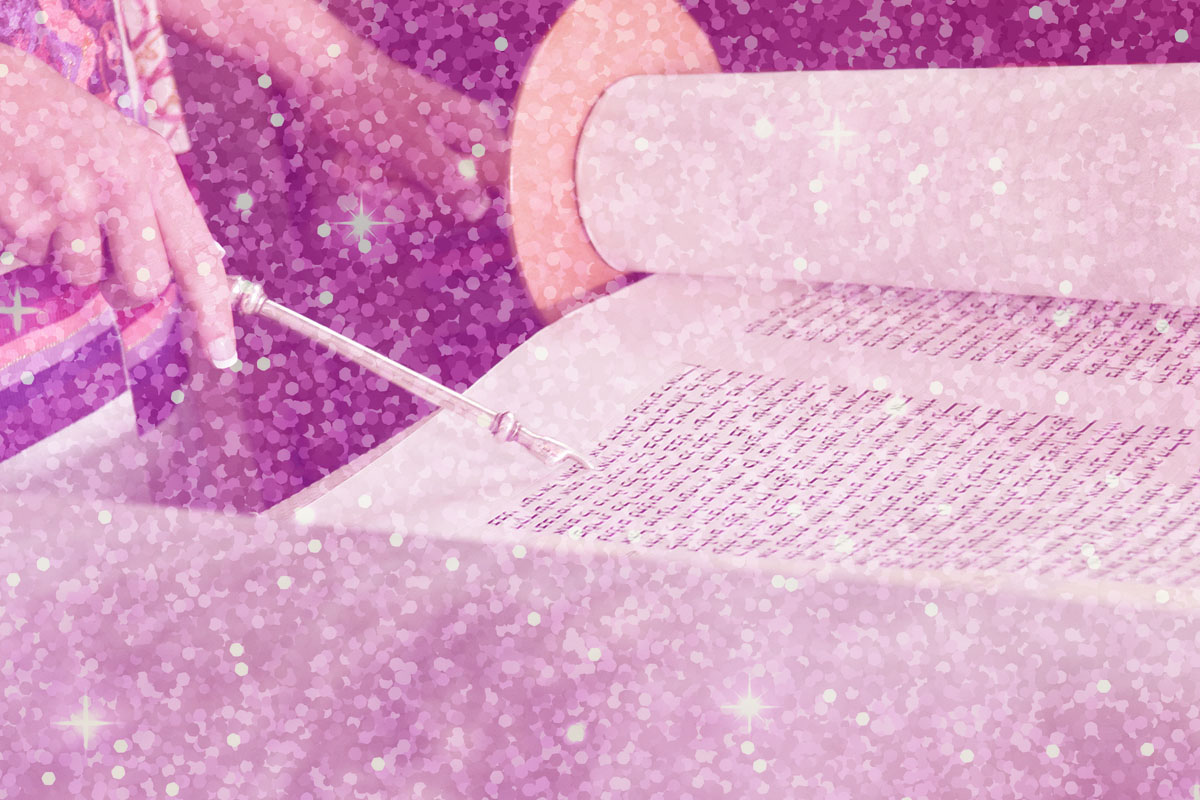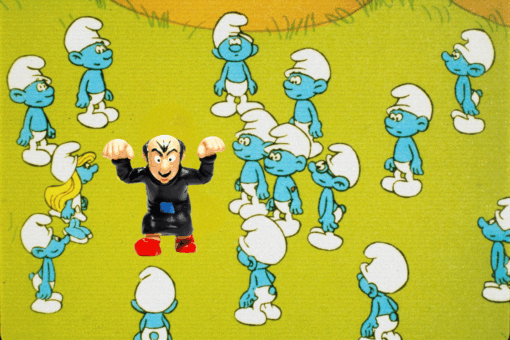As I stood with a tallit wrapped around my shoulders, I couldn’t help but think how different my bat mitzvah was than literally every other one I have ever attended.
To begin with, I didn’t even know I would have a bat mitzvah until nine days before the big day. I was 21, not 12. And instead of having my bat mitzvah in my home synagogue in Athens, Georgia, I was in a hotel conference room in Jerusalem.
Yes, I had a Birthright bat mitzvah. And as I stumbled through the blessings of my aliyah in Hebrew, I couldn’t help but wonder: Did it really count?
When I’ve attended bar and bat mitzvah services in the past, I’ve watched as my cousin or friend (or random kid of my dad’s buddy from college) stood at the bimah. They were always dressed to the nines, brace-faced and nervous. They read from the Torah. They make speeches with lovingly corny jokes a la Vanessa Bayer’s SNL character, Jacob the Bar Mitzvah Boy. Everyone claps and shouts and throws candy. Then everyone adjourns to the social hall for bagels and other noshes. It’s a familiar sight and one with which most American Jews are well acquainted.
My family wasn’t very religious. We’re interfaith; my dad is Jewish, and my mom is Catholic. I grew up in rural Georgia, a place not exactly known for its vibrant Jewish life. When we attended my cousins’ ceremonies, I always asked my parents why I couldn’t have a bat mitzvah. It was treated like a running joke in our family — of course I would want a bat mitzvah. Who wouldn’t want the money, the party, the attention? Nobody took me seriously. After all, we weren’t members of a synagogue — only my dad went, and then, just barely. My 12th birthday came and passed without mention of a bat mitzvah. It wasn’t a consideration until I went to Israel.
Not every Birthright Israel trip offers the experience of having a bar or bat mitzvah. According to the Birthright Israel Foundation, it’s up to the trip providers to organize them if they desire, and the Taglit-Birthright Israel organization has no role in these ceremonies. Some take place on top of Masada after a sunrise hike. Others are at the Kotel in the heat of the summer afternoon.
As my trip spanned 10 days in the dead of winter, the weather restricted our activities. It was raining for most of our days in Jerusalem, and bitter, brutal winds prevented us from having our ceremony atop Masada. Instead, they took place in a cramped hotel conference room on the last day of our trip. Eleven other participants on my trip decided to celebrate alongside me. We all met about it the evening before, circled in the same conference room in the hotel. Our trip’s guide, a funny Mizrahi man named Shabat, passed around a print-out of our shared Torah reading.
It was Shemot, the first six chapters of Exodus, and it told a familiar story: the Prince of Egypt, i.e. the same story we hear at Passover every year. We were only going to read the first aliyah, Exodus 1:1–17, which tells the story of how the Israelites grew in number in the generations following Joseph. Pharaoh then became afraid of the number of Israelites, so he enslaved them and embittered their lives.
I called my mom back in Georgia after the meeting, excited to tell her what I would be doing the next day. She was hesitant in sharing my excitement, before finally asking, “Well, it’s not going to be real, is it?”
I didn’t know how to answer her.
Most kids spend a long time learning Hebrew for this, I thought. I sat cross-legged on a hotel bed, reading a transliterated blessing. I was struggling with the guttural sounds that Hebrew required. Encouraged to prepare a few words to say about what I learned from the reading and how I was ready to commit to my community, I sat with my travel journal in hand. I tried to write a few things down. Most kids spend months writing their speeches.
Most kids’ families come to their ceremonies. The only family member I had was my brother Harrison, who went on Birthright with me. He sat in on the meeting but chose not to have a bar mitzvah himself. A strict atheist, he thought it was too religious for him.
And so I began to question the religiosity of the ceremony. How were we going to do this without a rabbi? Was my mom right? Was this going to be real?
My Birthright trip was a crash course in Judaism. I learned a lot over those 10 days, but there was still so much I didn’t know.
I didn’t know then that there aren’t religious rules surrounding bar and bat mitzvahs. I didn’t realize that everyone did it a little bit differently. I didn’t know that my aunt never had a bat mitzvah, and my Grandma Bertha had hers in her late 60s. I didn’t know that you didn’t need a rabbi, or to wear a tallit. I didn’t know that becoming a bat mitzvah meant action in your community, leadership, and a dedication to Jewish life. I don’t think I could have done any of those things at age 12 when I obsessed over writing Twilight fanfiction. At 21, I understood the gravity of the commitment I was choosing to make, and as I stood and read my little speech, I spoke to that.
I spoke of my recent trip to Auschwitz and Poland. Witnessing the devastation of Jews there pushed me to go on Birthright that year, not the next. I spoke about the ancient Israelites we read of in the Torah portion, how I wanted to join in that legion of Jews that made Pharoah so afraid. I spoke about my commitment to my community.
“I want to write about my experiences as a patrilineal Jew and about being Jewish. I want to share my story,” I said, my voice shaky. “I want to inspire others to join this legion, too.”
I spoke Hebrew. I prayed. My friends tossed candy at us. We danced the hora and ate cake. My family even joined me — my brother FaceTimed my parents, despite the fact it was 7 a.m. in Georgia. I finished my speech, now officially a bat mitzvah. I heard my mom and dad say “mazel tov,” congratulating me before they hung up.
And months later, talking about that day with the friends I made from the trip over brunch, I realized it counted. It was real. It was more than real — it was perfect.
Image by Frank Rosenstein via Getty Images



